Date and time: November 18, 2022
Organizers and Presenters
Bo Li
School of Electronics and Information
Northwestern Polytechnical University, China

Chunwei Tian
School of Software
Northwestern Polytechnical University, China
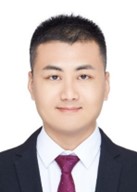
Tutorial Summary
With the development of big data technology, images have become carriers of human-computer interactions. However, due to illuminations, weather, camera shake, noise, collected images are damaged. Thus, image restoration techniques are useful to address this problem. Specifically, due to strong learning abilities, convolutional neural networks are widely used in image restoration. Also, deeper or wider network architectures become popular for image restoration. However, that may cause huger computational costs. Thus, how to design a lightweight network is very important for image restoration, which is very help to high-level vision tasks, i.e., face recognition, satellite monitoring and medical diagnosis. Inspired by that, we host a special session to bring together the research accomplishments provided by researchers from academia and the industry. The other goal is to show the latest research results in the field of attention technology and understand how governance strategy can influence it. We encourage prospective authors to submit related distinguished research papers on the subject of both: theoretical approaches and practical case reviews.
Topics to be Covered
The purpose of this workshop is to bring together academic researchers, engineers and individuals working in these fields to explore the future development scope and possibilities of computer vision. We welcome all original research related to one or any aspects of artificial intelligence for computer vision of all types.
Intended Audience
Students, researchers, and developers interested in machine learning, deep learning, NLP, computer science, image processing, video processing, speech processing.
Session Presenters
Jinghua Wang, Harbin Institute of Technology (Shenzhen)
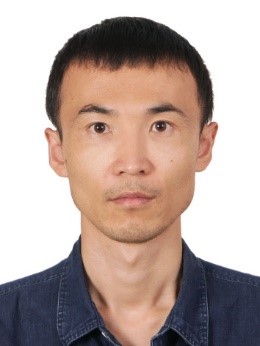
Presentation Topic: Learning across tasks for zero-shot domain adaptation
Jinghua Wang received his Ph.D. degree from The Hong Kong Polytechnic University (PolyU) in 2013. From 2014 to 2016, he was a research fellow with Nanyang Technological University (NTU), Singapore. From 2016 to 2017, he was a senior algorithm engineer with Huawei Technologies Co., Ltd. From 2017 to 2021, he was a research assistant professor with Shenzhen University. He is currently an associate professor in School of Computer Science and Technology, Harbin Institute of Technology (Shenzhen). He serves as an associate editor of International Journal of Image and Graphics (IJIG). He published at prestigious journals and prominent conferences, such as IEEE TPAMI, IEEE TIP, ICCV, and ECCV. His research interests include domain adaptation, zero-shot learning, unsupervised learning, computer vision, and pattern recognition.
Yizhen Lao, Hunan University
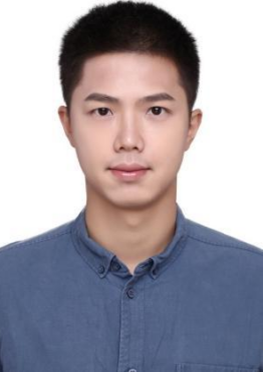
Presentation Topic: Rolling Shutter Correction in the Wild
Yizhen Lao is currently an associate professor and doctoral advisor at the College of Computer Science and Electronic Engineering, Hunan University. He obtained PhD degree from University of Clermont-Auvergne, Master's degree in Geo-information Science and Earth Observation from University of Twente and Bachelor's degree in Spatial-Informatics and Digitalized Technology from Wuhan University. His research is focused on 3D computer vision and computational photography. He published more than 10 papers at premier journals and conferences in computer vision research community such as T-PAMI, IJCV, CVPR, ECCV, ACM MM etc.
Yi Chang, Huazhong University of Science and Technology
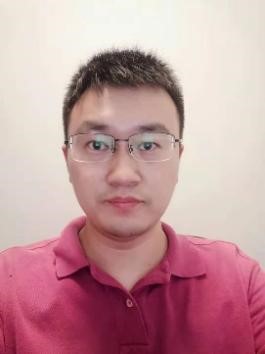
Presentation Topic: Image Enhancement and Understanding under Adverse Weather
Yi Chang received the B.S. degree in School of Automation from the University of Electronic Science and Technology of China, Chengdu, China, in 2011, the M.S. degree in pattern recognition and intelligent systems from the Huazhong University of Science and Technology, Wuhan, China, in 2014, and the Ph.D. degree from the School of Artificial Intelligence and Automation, Huazhong University of Science and Technology, in 2019. Between 2020 and 2022, he was a Post-Doctorate with AI Research Center in Pengcheng Laboratory. Now, he is Lecture in School of Artificial Intelligence and Automation, Huazhong University of Science and Technology. His research interests include image enhancement under adverse condition, multispectral image processing and neuromorphic event imaging. He has published more than 40 academic papers in CVPR, ICCV, AAAI, TIP and so on.
Qi Zhu, Nanjing University of Aeronautics and Astronautics
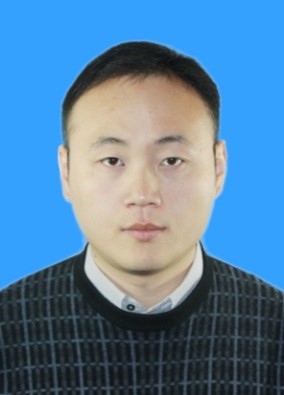
Presentation Topic: Brain Network Intelligence Analysis based on Multimodal Neuroimaging
Qi Zhu received the Ph.D. degree in computer science from Harbin Institute of Technology in 2014. He is associate professor at the College of Computer Science and Technology, Nanjing University of Aeronautics and Astronautics. He is a member of the Committee of Graphics Big Data of China Graphics Society, the Committee of Medical Image Processing of Jiangsu Artificial Intelligence Society, and Editorial Board member of International Journal of Image and Graphics. His research interest includes artificial intelligence, multimodal data fusion and its application in medical image analysis. He has published over 80 papers, which have been cited for more than 1400 times. He leads the foundation projects of the National Natural Science Foundation of China and the Natural Science Foundation of Jiangsu Province. He has won the prize of Jiangxi Provincial Natural Science Award, Shenzhen Natural Science Award, and the best paper award of ICGEC.
Wenqi Ren, Nanjing University of Aeronautics and Astronautics
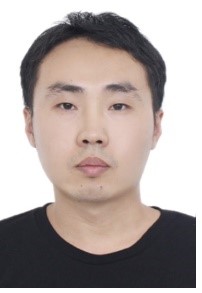
Presentation Topic: Rethinking Image Restoration for Object Detection
Wenqi Ren received the Ph.D. degree from Tianjin University, Tianjin, China, in 2017. From 2015 to 2016, he was supported by the China Scholarship Council as a joint-training Ph.D. Student with the Electrical Engineering and Computer Science Department, University of California at Merced. He is currently an Associate Professor with the School of Cyber Science and Technology, Sun Yat-sen University, Shenzhen Campus, Shenzhen, China. His research interests include image processing and related high-level vision problems.
Tutorial References
- Zhang K, Zuo W, Chen Y, et al. Beyond a gaussian denoiser: Residual learning of deep cnn for image denoising[J]. IEEE transactions on image processing, 2017, 26(7): 3142-3155.
- Zhang K, Zuo W, Gu S, et al. Learning deep CNN denoiser prior for image restoration[C]//Proceedings of the IEEE conference on computer vision and pattern recognition. 2017: 3929-3938.
- Zhang K, Zuo W, Zhang L. FFDNet: Toward a fast and flexible solution for CNN-based image denoising[J]. IEEE Transactions on Image Processing, 2018, 27(9): 4608-4622.
- Tian C, Fei L, Zheng W, et al. Deep learning on image denoising: An overview[J]. Neural Networks, 2020, 131: 251-275.
- Tian C, Xu Y, Zuo W. Image denoising using deep CNN with batch renormalization[J]. Neural Networks, 2020, 121: 461-473.
- Dong C, Loy C C, He K, et al. Image super-resolution using deep convolutional networks[J]. IEEE transactions on pattern analysis and machine intelligence, 2015, 38(2): 295-307.
- Kim J, Lee J K, Lee K M. Deeply-recursive convolutional network for image super-resolution[C]//Proceedings of the IEEE conference on computer vision and pattern recognition. 2016: 1637-1645.
- Dong C, Loy C C, Tang X. Accelerating the super-resolution convolutional neural network[C]//European conference on computer vision. Springer, Cham, 2016: 391-407.
- Tai Y, Yang J, Liu X, et al. Memnet: A persistent memory network for image restoration[C]//Proceedings of the IEEE international conference on computer vision. 2017: 4539-4547.
- Zhang Y, Tian Y, Kong Y, et al. Residual dense network for image super-resolution[C]//Proceedings of the IEEE conference on computer vision and pattern recognition. 2018: 2472-2481.
- Tai Y, Yang J, Liu X. Image super-resolution via deep recursive residual network[C]//Proceedings of the IEEE conference on computer vision and pattern recognition. 2017: 3147-3155.
- Yang W, Zhang X, Tian Y, et al. Deep learning for single image super-resolution: A brief review[J]. IEEE Transactions on Multimedia, 2019, 21(12): 3106-3121.
- Wang Z, Chen J, Hoi S C H. Deep learning for image super-resolution: A survey[J]. IEEE transactions on pattern analysis and machine intelligence, 2020, 43(10): 3365-3387.
- Tian C, Zhuge R, Wu Z, et al. Lightweight image super-resolution with enhanced CNN[J]. Knowledge-Based Systems, 2020, 205: 106235.
- Lahiri A, Bairagya S, Bera S, et al. Lightweight modules for efficient deep learning based image restoration[J]. IEEE Transactions on Circuits and Systems for Video Technology, 2020, 31(4): 1395-1410.
- Lan R, Sun L, Liu Z, et al. MADNet: a fast and lightweight network for single-image super resolution[J]. IEEE transactions on cybernetics, 2020, 51(3): 1443-1453.
- Liu J, Tang J, Wu G. Residual feature distillation network for lightweight image super-resolution[C]//European Conference on Computer Vision. Springer, Cham, 2020: 41-55.
- Yang A, Yang B, Ji Z, et al. Lightweight group convolutional network for single image super-resolution[J]. Information Sciences, 2020, 516: 220-233.